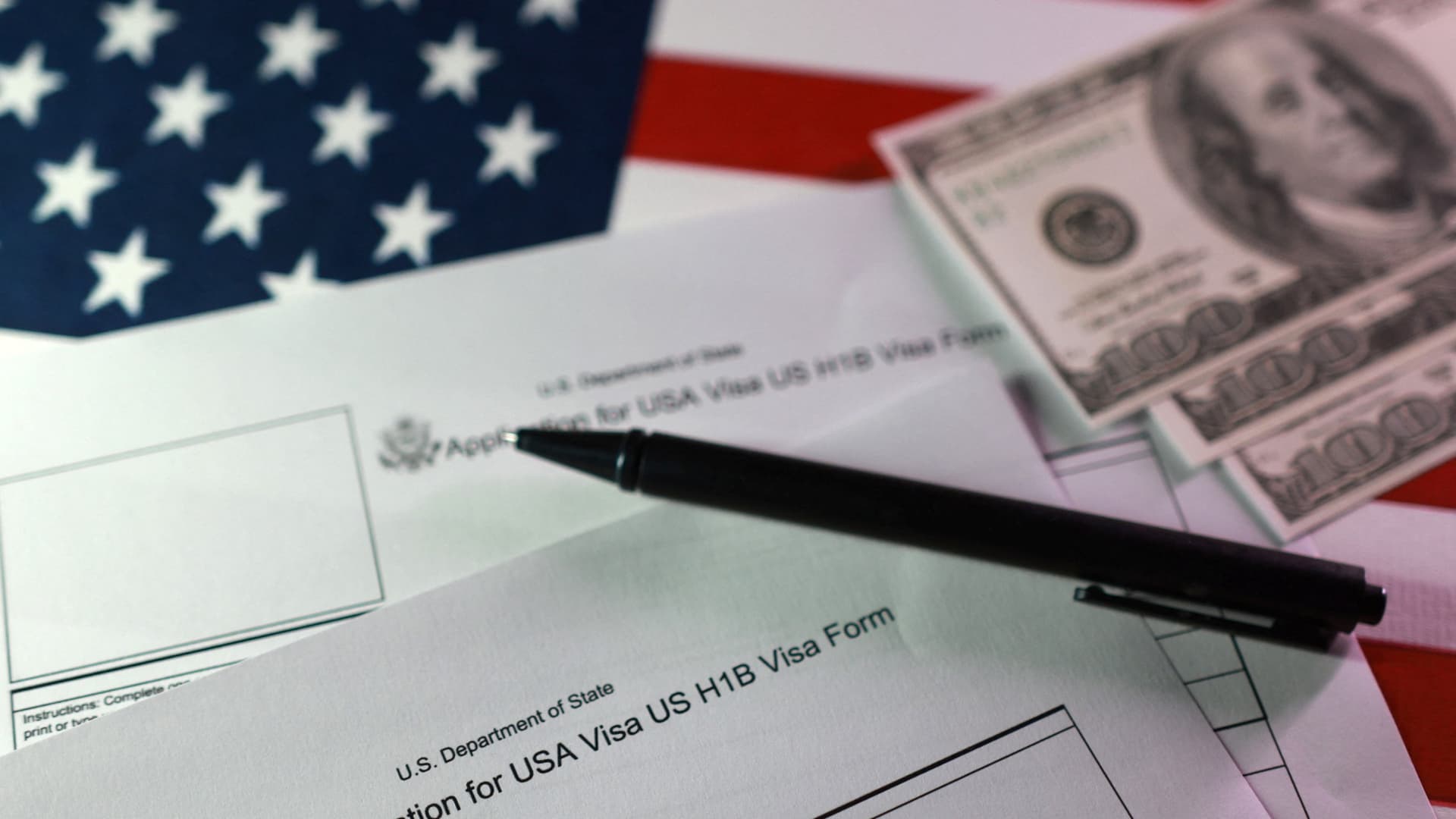The U.S. Chamber of Commerce on Thursday filed a lawsuit over the Trump administration imposing a $100,000 fee to the H-1B worker visas.
Last month President Donald Trump announced plans that would see U.S. companies to pay $100,000 per year for H-1B visas — which allows companies to temporarily hire foreign workers in skilled occupations in various fields, including technology and engineering — in an attempt to rework the program.
In a release regarding the lawsuit on Thursday, the Chamber called the new fee unlawful since it “overrides provisions of the Immigration and Nationality Act that govern the H-1B program, including the requirement that fees be based on the costs incurred by the government in processing visas.”
“The new $100,000 visa fee will make it cost-prohibitive for U.S. employers, especially start-ups and small and midsize businesses, to utilize the H-1B program, which was created by Congress expressly to ensure that American businesses of all sizes can access the global talent they need to grow their operations here in the U.S.,” said Neil Bradley, executive vice president and chief policy officer at the U.S. Chamber in the release.
A White House representative didn’t immediately respond to a request for comment.
The steep fee was expected to be a big blow to companies in the technology sector, particularly startups and venture capital-backed companies, which often rely on skilled workers from India and China.
Big Tech companies, including those that donated heavily to the Trump campaign, have been beneficiaries of the program.
It was already difficult for U.S. startups to secure H-1B visas due to limited annual quotas.
H-1B visas — created by Congress in 1990 — are typically valid for three years and can be extended up to six years. The program is capped at 65,000 visas per year, with an additional carve out of 20,000 for individuals with advanced degrees. Prior to the change, fees had ranged from $2,000 to $5,000 per application, depending on the size of the company, CNBC previously reported.
The administration has also proposed further changes to the H-1B program’s lottery selection system.
The changes have come in the months following Trump entering office and amid a push to limit immigration and see American companies hire more domestically.
“President Trump has embarked on an ambitious agenda of securing permanent pro-growth tax reforms, unleashing American energy, and unraveling the overregulation that has stifled growth. The Chamber and our members have actively backed these proposals to attract more investment in America. To support this growth, our economy will require more workers, not fewer,” Bradley said in the Thursday release.





